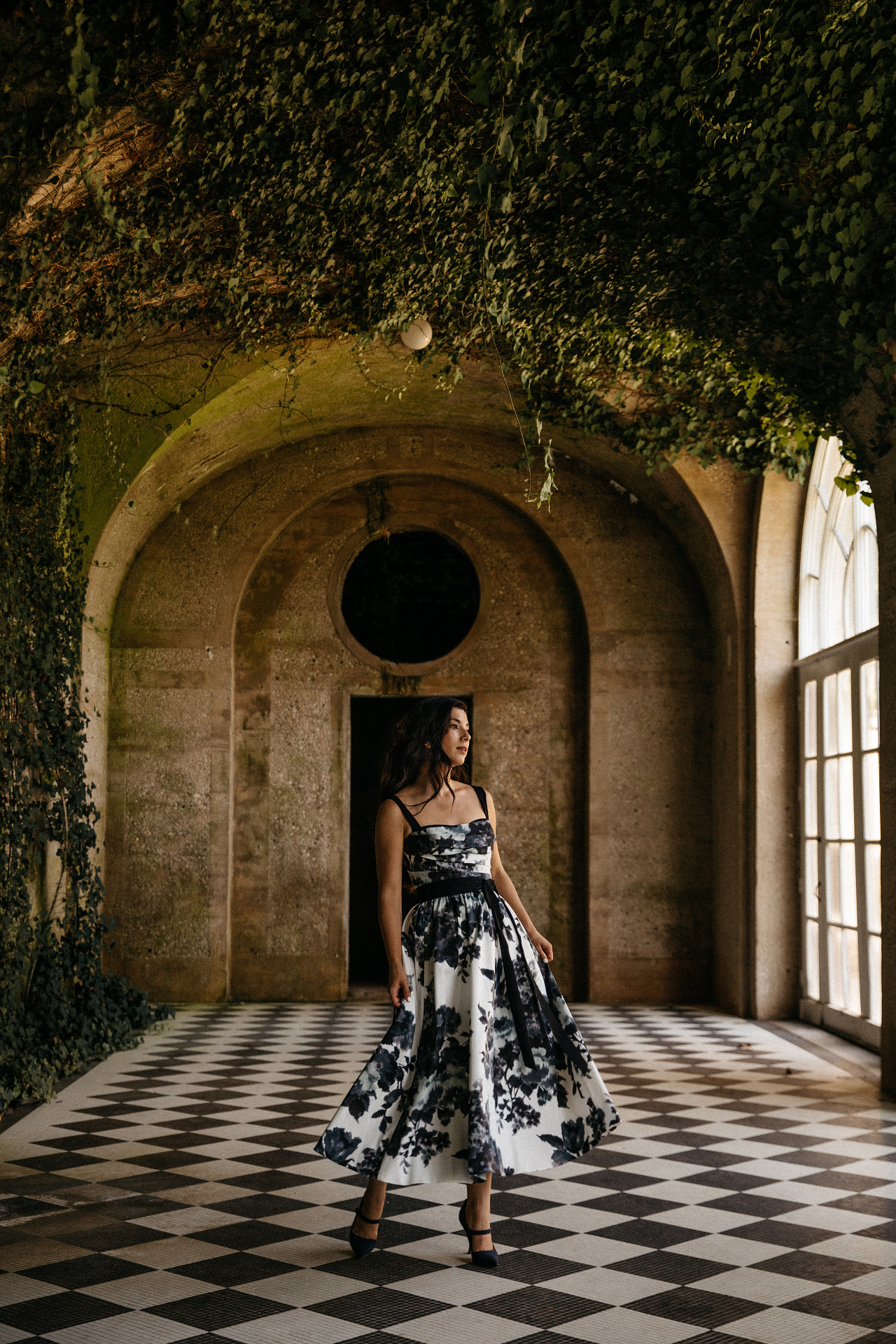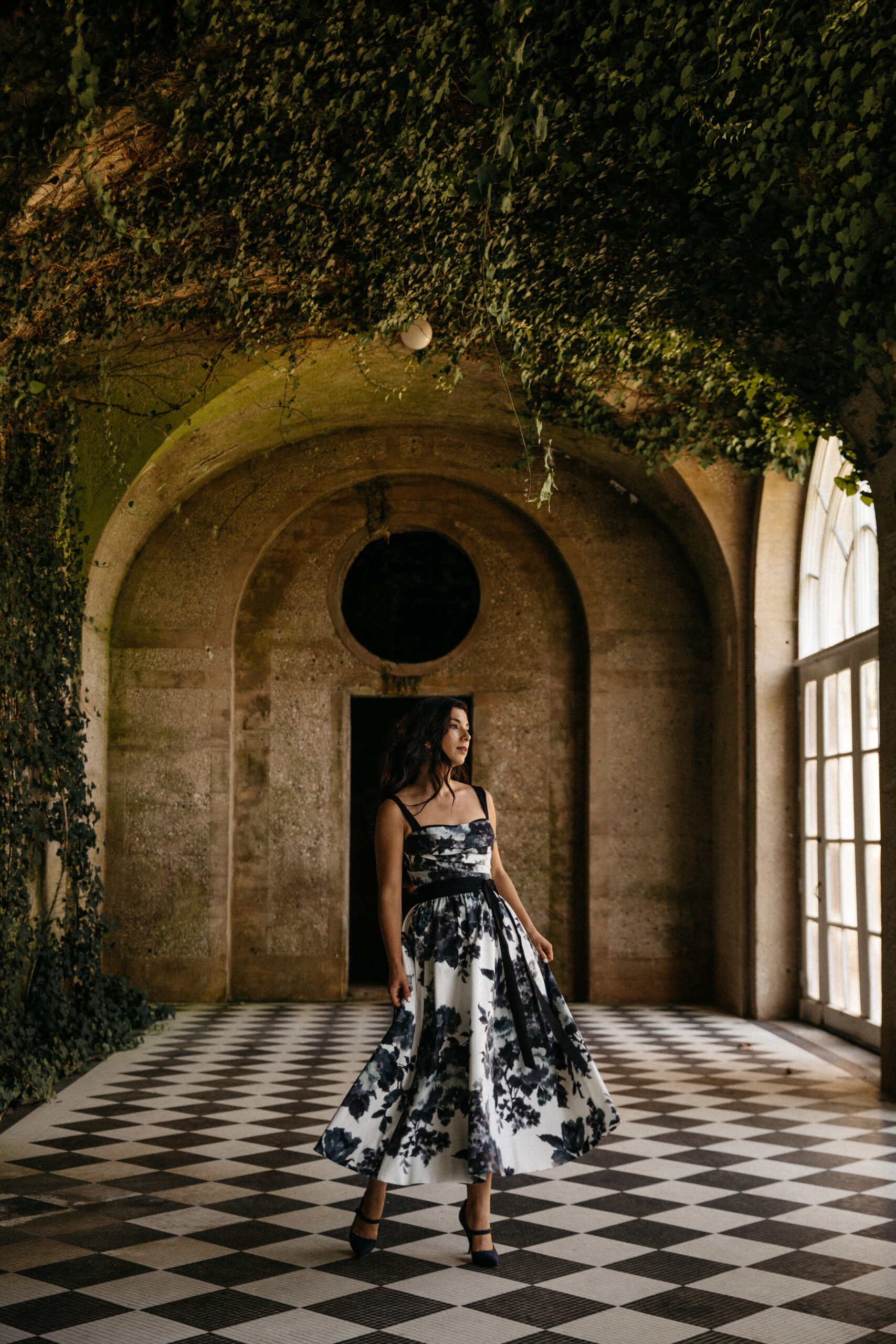
The other day, I came across the Japanese phrase “koi no yokan” which is used to describe the feeling upon first meeting someone who you will inevitably fall in love with. It literally translates to “the premonition of love.” Isn’t it lovely there are words, sometimes in other languages, that capture a feeling, no matter how rare or obscure, absolutely perfectly? And when you stumble upon them and their meaning, something clicks into place — a puzzle piece wiggled into just the right corner with just the right touch — and you realize, “I know that feeling.”
So I’m curious — how many of you know this feeling of “koi no yokan?” Of the romantic and platonic kind alike — because I’m absolutely certain we encounter friends in the same way we embrace our lovers. Sometimes, when you meet someone who’s meant to be in your life for a long time well, in a far less poetic English variation…when you know, you know.
And since I always love learning new words, in the language I natively speak, and others — I asked you all to share obscure and deeply felt feelings and concepts in languages other than English. Here's what you all shared with me! Hope you enjoy!

- Jeong (Korean): Feeling, love, sentiment, passion, human nature, sympathy, heart. Although it is complicated to introduce a clear definition of jeong, it seems to include all of the above as well as more basic feelings, such as attachment, bond and affection.
- Weltschmerz (German): A feeling of melancholy and world-weariness.
- Glückseligkeit (German): Extreme bliss, happiness
- Fernweh (German): A longing for distance, far off places, usually ones you've yet to visit
- Estremercer (Spanish): When something is so beautiful, it causes you to tremble
- Gezellig (Dutch): Meaning a number of things, including cozy and snug. Its definition goes beyond that, though, encompassing more social concepts such as sociable, convivial and companionable
- Coup de foudre (French): Love at first sight, literally translating to lightning strike
- Mimar (Spanish): To pamper; to spoil (to treat with excessive care, to indulge
- Kilig (Tagalog): refers to the feeling of excitement due to various love circumstances such as making first eye contact with one's crush or watching another person propose to someone
- Eunoia (Greek): well mind; beautiful thinking') is the goodwill a speaker cultivates between themselves and their audience
- Wabi-sabi (Japanese): A world view centered on the acceptance of transience and imperfection. The aesthetic is sometimes described as one of appreciating beauty that is "imperfect, impermanent, and incomplete" in nature. It is a concept derived from the Buddhist teaching of the three marks of existence (三法印, sanbōin), specifically impermanence (無常, mujō), suffering (苦, ku) and emptiness or absence of self-nature (空, kū).
- Ya'aburnee (Arabic): Literally translates to "You bury me" meaning that the speaker hopes to die before someone else does as they realize how difficult it would be to live without that person
- Hiraeth (Welsh): The feeling of homesickness combined with grief and sadness for your homeland or a romanticized past.
- Dal misk (Berber, Kabylian dialect): Meaning sumptuous, literally translating to "that's silk"
- Toska (Russian): A mixture of pining, restlessness, yearning, nostalgia, melancholy, and depression
- Jaysus (Indonesian): A not so funny joke that’s told so badly that you actually laugh
- Tartle (Scottish): The hesitation before introducing someone when you’ve forgotten their name
- L’appel du vide (French): Literally ‘the call of the void’ or the sudden desire to jump when you’re standing high up
- Flâner (French): Aimlessly wandering without any destination, just to enjoy the views
- L’abbioccio (Italian): The groggy, sleepy, happy feeling after a large meal
- Merak (Serbian): The feeling you get from simple pleasures that adds up to a sense of happiness and fulfillment
- Gluggaveður (Icelandic): Weather that looks beautiful but is unpleasant to be in
- Saudade (Portuguese): Much like hiraeth, this is the longing for something beautiful that’s now gone
- L’esprit d’escalier (French): Literally ‘the spirit of the stairs’ this is when you think of the perfect come back or retort after the conversation has happened
- Gökotta (Swedish): Waking up early to hear the first birds sing
- Komorebi (Japanese): Sunlight that filters between the leaves on a tree
- Pochemuchka (Russian): A person who asks too many questions
- Won (Korean): Reluctance to let go of an illusion


Carolina Herrera dress (borrowed) // Shot on location at Oheka Castle in Huntington, New York

Photography
Allie Provost





Incredible! I have just discovered your blog and can’t wait to continue. Thank you!
This post! This POST!! It’s incredible! It made me make audible sounds as I read. I’m not joking. I need to go back and read all these amazing words again.
Here are some of my favorites:
I love “Kilig.” I especially love kilig when it happens in the books I read. Basically I equate kilig to the butterflies one gets from seeing love. (Let me know if you want a book list!)
When I visited Rio de Janiero, I suffered from “Estremercer.” It was actually so beautiful there it made me sob. It was such an unusual experience, but I remember it perfectly!
I’m living in “Gluggaveður.” Quito’s weather is insane! I am so cold all the time–as I write this comment there is a space heater warming me.
I love my life overseas. We have just started year 25! Of course, I totally suffer from “Hiraeth.” Often.
Based on my lifestyle, I definitely have “Fernweh!”
Finally, “Tartle” cracks me up, I suffer from “L’appel du vide,” and I am a “Pochemuchka.” (That’s probably why being a librarian is the perfect job for me!)
Krystal, if there were an award to be given for best blog post, this would win! It was such a delight to read. Thank you!
Love, Annie
I love learning new words and these were wonderful to learn! The setting is stunning–I’ve always wanted to stay here, but we live nearby so I don’t really have an excuse 🙂
The Floor marbel and dress prints are superb matching,check out at DIYAONLINE
I loved this article! I’m a firm believer in striving to use the “mot juste”as much as possible. So, in order to find the right word to match your feeling, you may have to find it in another language. How divine!